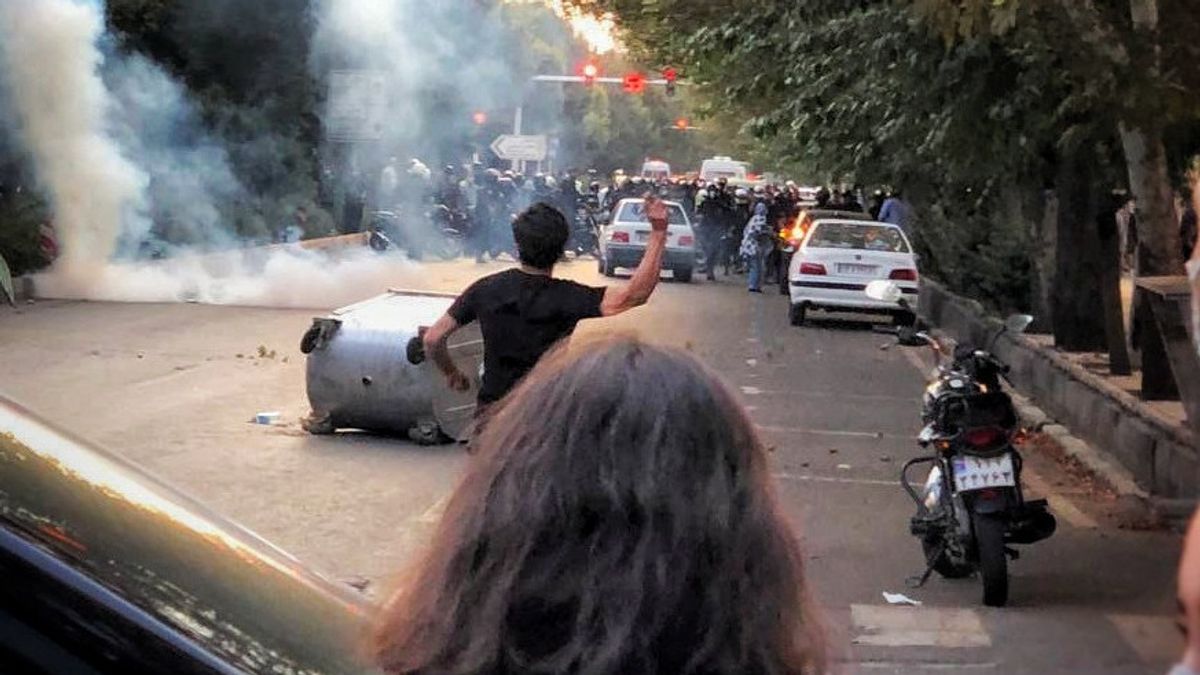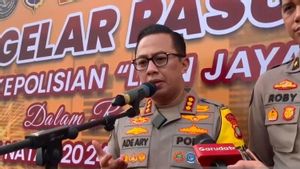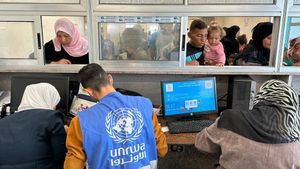JAKARTA - A number of foreign ministers of countries around the world will discuss brutal acts against protesters in Iran, at Thursday's online meeting held by Canada.
Canadian Foreign Minister Melanie Joly and 14 other female foreign ministers will discuss the riots sparked by Mahsa Amini's death in Iran's moral police custody last month. The incident has been a flashpoint for one of Iran's boldest challenges since the 1979 revolution.
"My colleagues and I will gather to send a clear message: the Iranian regime must end all forms of violence and persecution against the Iranian people, including their brutal aggression against women in particular," Foreign Minister Joly said.
"Canada will continue to support Iranians who dare to fight for their human rights, defend their mothers, sisters, wives and daughters. Women's rights are human rights," he explained.
Foreign ministers from Germany, Chile, New Zealand, and Norway are among the 14 people who will join Canada, a government official said. Meanwhile, France will join but Foreign Minister Catherine Colonna cannot attend, the official said.
During the meeting, officials will hear from women of Iranian descent, discussing the state of women and human rights in Iran, Minister Joly's office said, adding it would give them the opportunity to coordinate efforts and discuss "ways to improve their collective. support for the Iranian people."
Canada itself joins other countries, including the United States, in imposing sanctions on Iran.
Other countries that are expected to participate in the meeting are Albania, Andorra, Central African Republic, Chile, Iceland, Kosovo, Libya, Liechtenstein, Mongolia, and Panama.
Separately, Foreign Minister Joly announced additional sanctions on Wednesday for human rights abuses in Iran. The sanctions affected four entities and six people, including Iranian Deputy Interior Minister Majid Mirahmadi.
It is known that the unrest situation due to the protracted protests in Iran has raised international concerns as talks about Iran's nuclear capabilities are deadlocked, with Tehran having moved to support Russia's invasion of Ukraine, which is against the West.
Iran accuses countries expressing support for protests sparked by Mahsa Amini's death (22), interfering in internal affairs of its country.
Amini, who is from Iran's Kurdistan region, died on September 16 after being detained by moral police for three days in Tehran for "unsuitable use".
Meanwhile, Iranian leaders have tried to describe the unrest as part of a breakaway uprising by the Kurdish minority that threatens national unity, rather than protests against clerical rule.
The English, Chinese, Japanese, Arabic, and French versions are automatically generated by the AI. So there may still be inaccuracies in translating, please always see Indonesian as our main language. (system supported by DigitalSiber.id)









